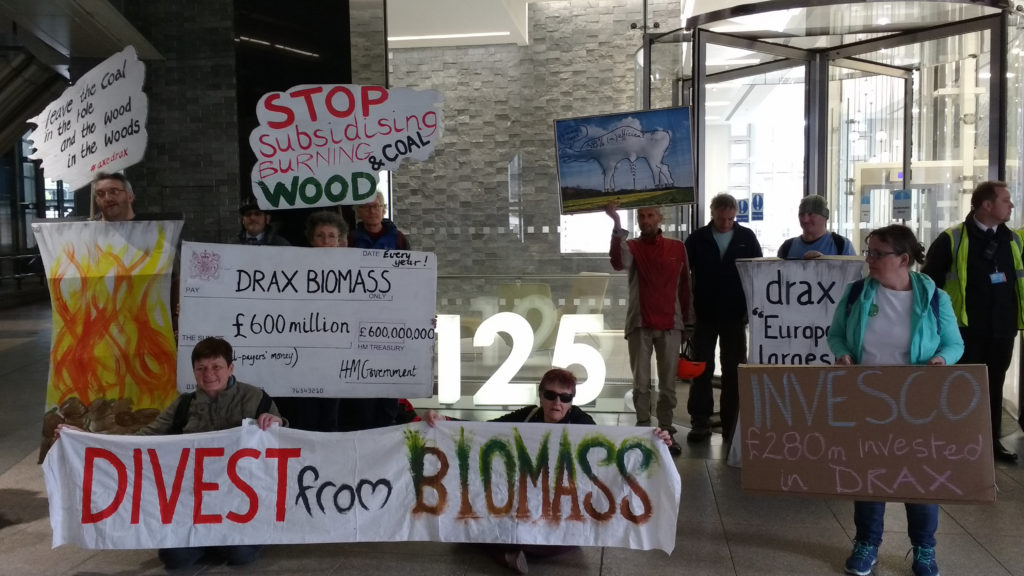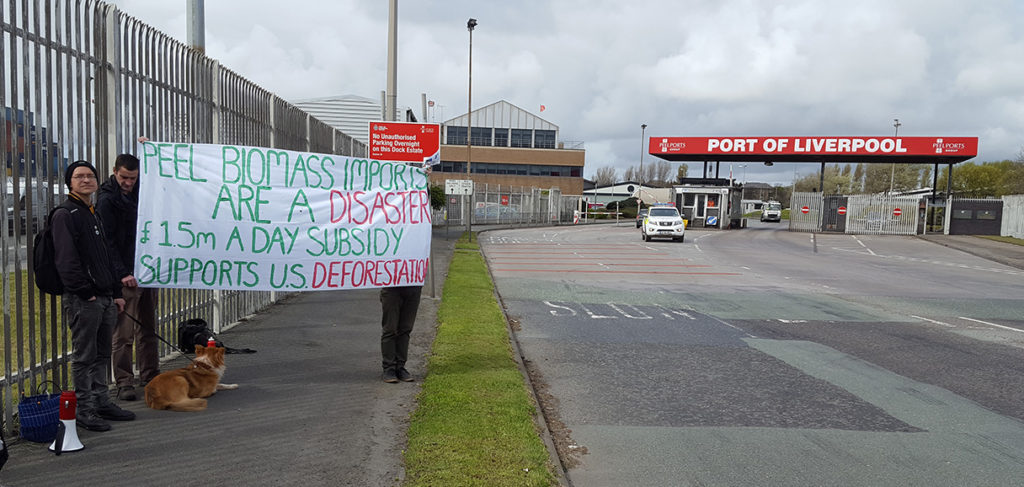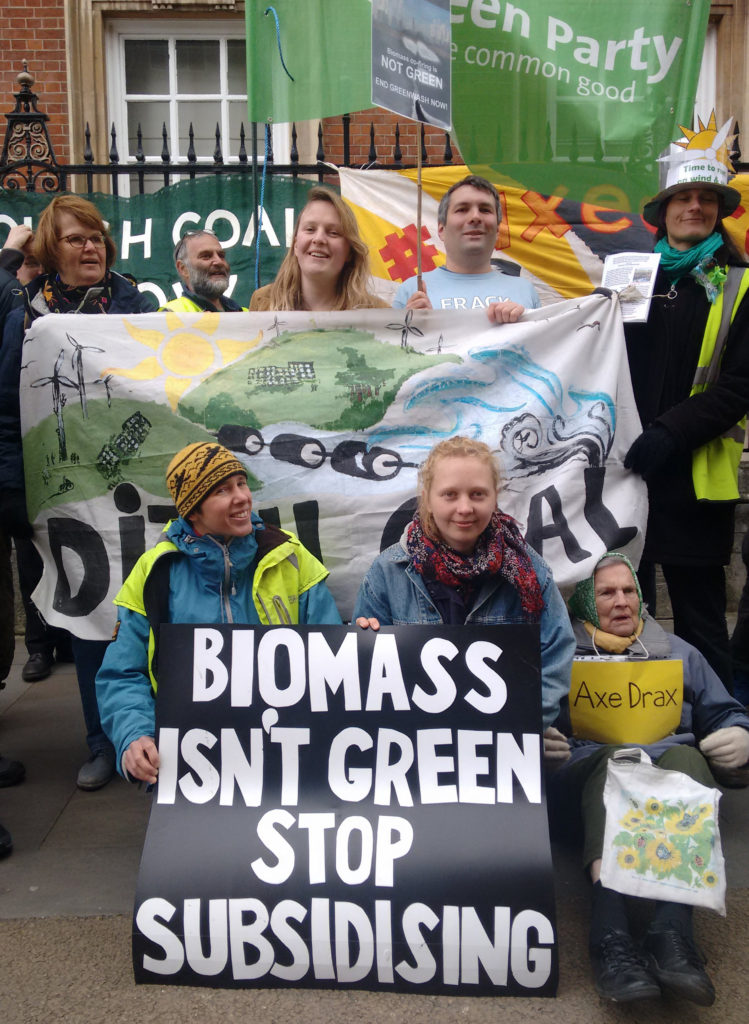On 13th April, Biofuelwatch and our allies from the Coal Action Network, Fuel Poverty Action, London Mining Network as well as Yorkshire and Liverpool campaigners against dirty energy staged three simultaneous protests to coincide with Drax Plc’s Annual General Meeting. We wanted to keep the attention on Drax’s commitment to dirty energy, its continued reliance on government subsidies – which should instead be going to support energy conservation and genuinely renewable energy – and its contributions to deforestation, destructive coal mining, and climate change. We also wanted to draw attention to Drax’s recent investment in a third form of dirty energy – gas, which will create yet another incentive for fracking. A good time was had by all and we hope to build on these events and the connections they made to continue actively resisting Drax and the biomass and fossil fuel industry feeding it.
If Drax was hoping to avoid protests by moving the AGM away from its usual location in London, it failed. There was a loud and cheerful demonstration outside the AGM at the Grand Hotel in York, where AGM delegates were met by campaigners wielding banners and placards reading ‘Drax the Destroyer’, ‘Biomass is not green, stop subsidising’ and ‘End coal now’.

At the same time, climate change and human rights campaigners gathered outside Drax’s two largest investors in the City of London, Schroders and Invesco, handing out a ‘warning to investors’ and letting passers by know that Drax is burning the habitat of endangered species in the US and fuelling runaway climate change worldwide. Investors in London and York were handed a Warning to Investors. This leaflet was handed to passers-by.

Meanwhile in Liverpool, local campaigners unfurled a banner at the entrance to Peel Port, where some of the wood pellets burnt at Drax Power Station arrive from the US before being taken to the power station by train.

Inside the AGM, Drax faced dissent from within its own ranks. A third of shareholders voted against excessive bonuses to bosses including £500,000 to finance chief Will Gardiner and £750,000 to CEO Dorothy Thompson.
In 2016, Drax received almost £1.5 million every day in ‘renewable energy’ subsidies for burning wood instead of coal, much of it imported from biodiverse forests in the southern US. These subsidies are paid out of a surcharge on electricity bills. We believe that energy subsidies must only go to genuinely low carbon renewable energy, especially wind and solar power, and to energy conservation and efficiency.
Andy Hiles, a local Selby councillor who attended the York protest, said “We’re appalled that these forms of dirty energy receive £1.5 million a day out of our bills, when that money could be going to genuine renewable energy like wind and solar, and to home insulation, which would also provide a lot of jobs. We’re also concerned by reports that workers at Drax are experiencing breathing problems from biomass.”
Anne Harris from the Coal Action Network, also at the York protest, said, “Indigenous Wayuu children [near the Cerrejon mine in Colombia, which supplies Drax] are dying as a result of mining coal to supply Drax power station. The dust affects their breathing, and water shortages due to the mine’s water consumption are leading to starvation. Drax needs to listen to the consumers of this energy and understand that coal is only clean when it is left in the ground. Drax and the UK government need to ditch coal now.”

Duncan Law from Biofuelwatch, who was at the London protests, said,
“We came to tell Drax’s two largest investors that financing forest destruction is unacceptable and a bad investment decision. Drax relies on government subsidies to stay afloat, receiving almost £1.5 million a day which should instead be going towards energy conservation and genuine renewables such as wind and solar power.”
Katy Brown, who lives in Liverpool and attended the protest at the port, said,
“We see trains leaving the port every day with ‘sustainable biomass’ written on them. Biomass that relies on imported wood from biodiverse ecosystems or from monoculture plantations is in no way sustainable.”
Many thanks to all who contributed and turned up to make these events happen. One day we will win.
